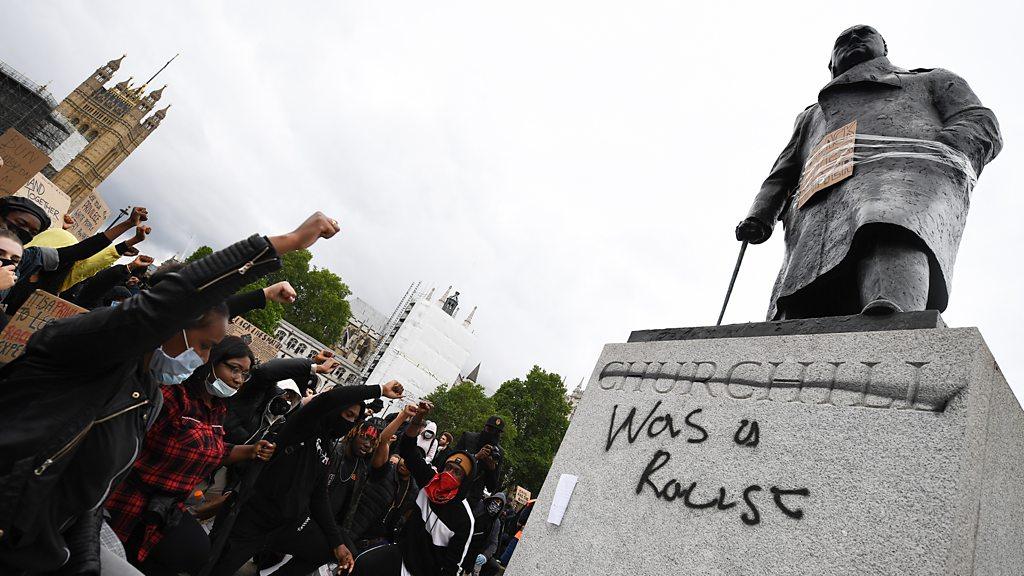Slavery: 'Time for decisions' on slave owner statues and street names
- Published
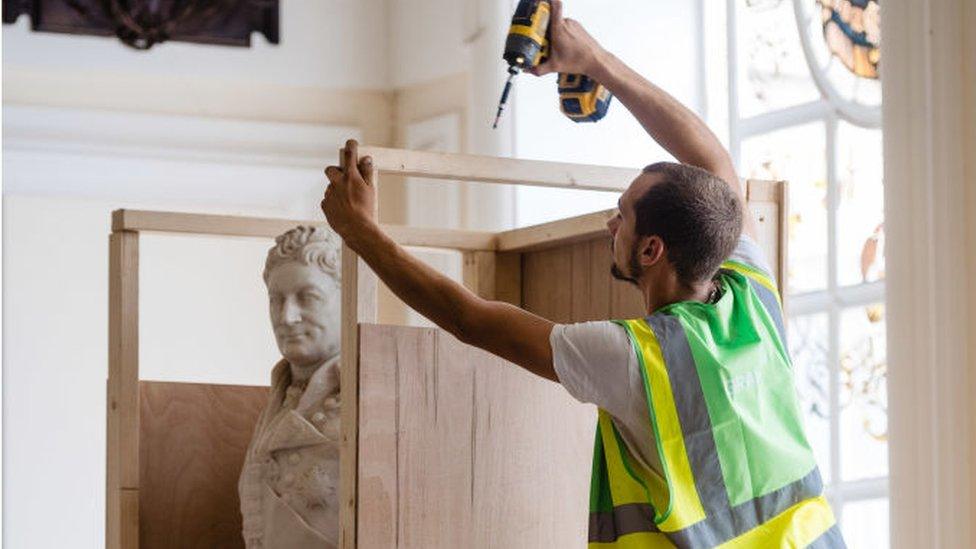
A statue of enslaver and Waterloo war hero Sir Thomas Picton has been boxed up at Cardiff's City Hall
The time has come for decisions on what to do with Wales' 209 memorials to people with links to slavery, the founder of Race Council Cymru has said.
It is exactly a year since the audit, ordered by First Minister Mark Drakeford, was published.
Some want contentious statues removed or updated with details of the subject's links to the slave trade.
The Welsh government said an update of future plans would be outlined next month.
The memorials identified as commemorating people directly involved with the slave trade or who opposed its abolition include streets, buildings, portraits and statues.
The audit also found "commemoration of people of colour" to be "negligible", external.

Prof Uzo Iwobi says decisions over contentious memorials should neither be rushed nor drag on forever
Race Council Cymru founder Prof Uzo Iwobi said: "In my own community, what we wanted was to instantly have all these statues removed to be honest.
"Personally, I would say, put them in a museum of the unglorified… and let people visit them to learn what not to do to other human beings."
But she acknowledged that would be costly and not every black Welsh person felt the same.
"There is a long journey ahead because these have been monuments have been standing for a long time," she said.
She said it was easy to be impatient: "Everybody would like to fix racism in one day, I'd love to click my fingers and have my children not face the racism that they faced in their very young lives."
She added: "We know that Rome wasn't built in one day and it's one step at a time.
"[But] it's time for dialogue and it's time for decisions."
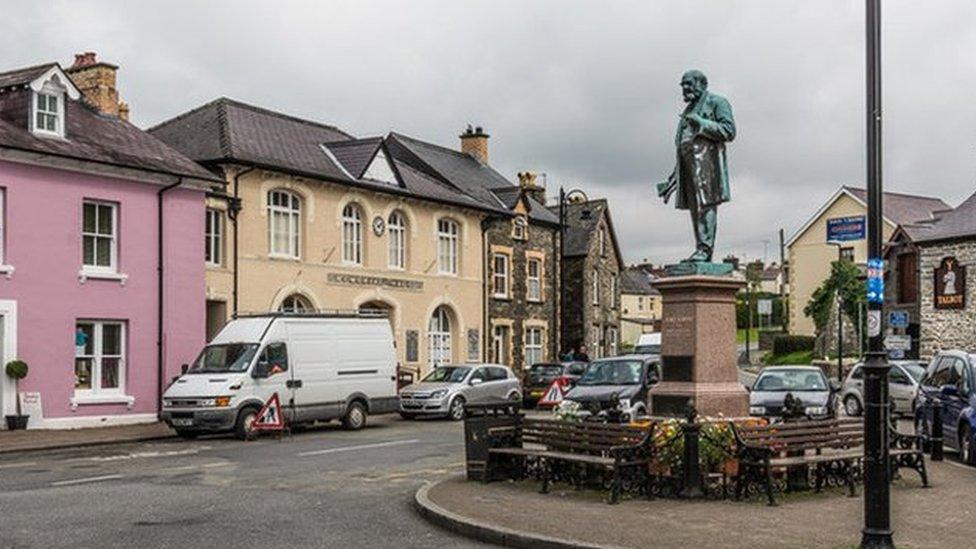
The audit also unearthed commemorations to anti-slavery activists across Wales, such as Henry Richard in Tregaron, Ceredigion
She said those making the decisions must "let the views of those whose lives were decimated by the behaviours of these individuals be heard".
"We have to bring thought to this because the implications are particularly important, at the same time we don't want this to drag on forever," she added.
Protests took place around the world after George Floyd, an unarmed black man, died in police custody in Minneapolis in the United States in May 2020.
The following month, a statue of slave trader Edward Colston was torn down in Bristol and a statue of Sir Winston Churchill erected in Parliament Square, Westminster, was sprayed with graffiti during an anti-racism protests.
Anti-racism demonstrations across the UK have been attended by hundreds of thousands of people.
Prof Iwobi, who said she had moved house three times because of racism and attacks on her property, wants the dark legacy of slavery acknowledged.
"It was my ancestors, 400 million Africans were transported unwillingly without consent," she said.
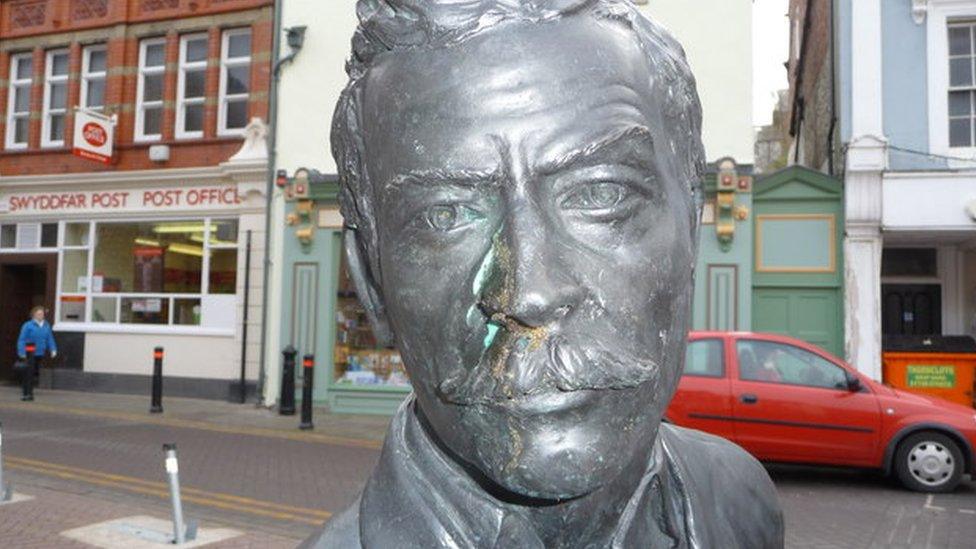
Last month Denbigh residents voted overwhelmingly to retain a bronze of Africa explorer Henry Morton Stanley
"In Nigeria, I remember my grandmother saying that when she was a little girl her great grandmother always said, 'be careful how you're behaving, if you're naughty I'll give you two the slave catchers'.
"That must have been a terrible, terrible thing to tell a child, so you know... the Welsh people of today of good conscience would hear those stories and be like 'this is not right'."
What has happened since the audit?
In March, a Senedd committee published a report in to who gets remembered in public spaces, external.
It made nine recommendations, including that the Welsh government should leave ultimate authority for decisions relating to contentious memorials to local authorities and communities, who should engage experts and historians.
It also said the Welsh government should create a comprehensive "one-stop shop" guidance document for councils and public bodies to use when making decisions.
The Welsh government said it would respond to this report by the end of month and preparatory work on a guidance document was underway.
A spokesman said: "Over the past year we have initiated a number of important pieces of work to deliver the truly anti-racist Wales we all want to see."
He said an update of future plans would be outlined next month.
Have any memorials been taken down or modified?
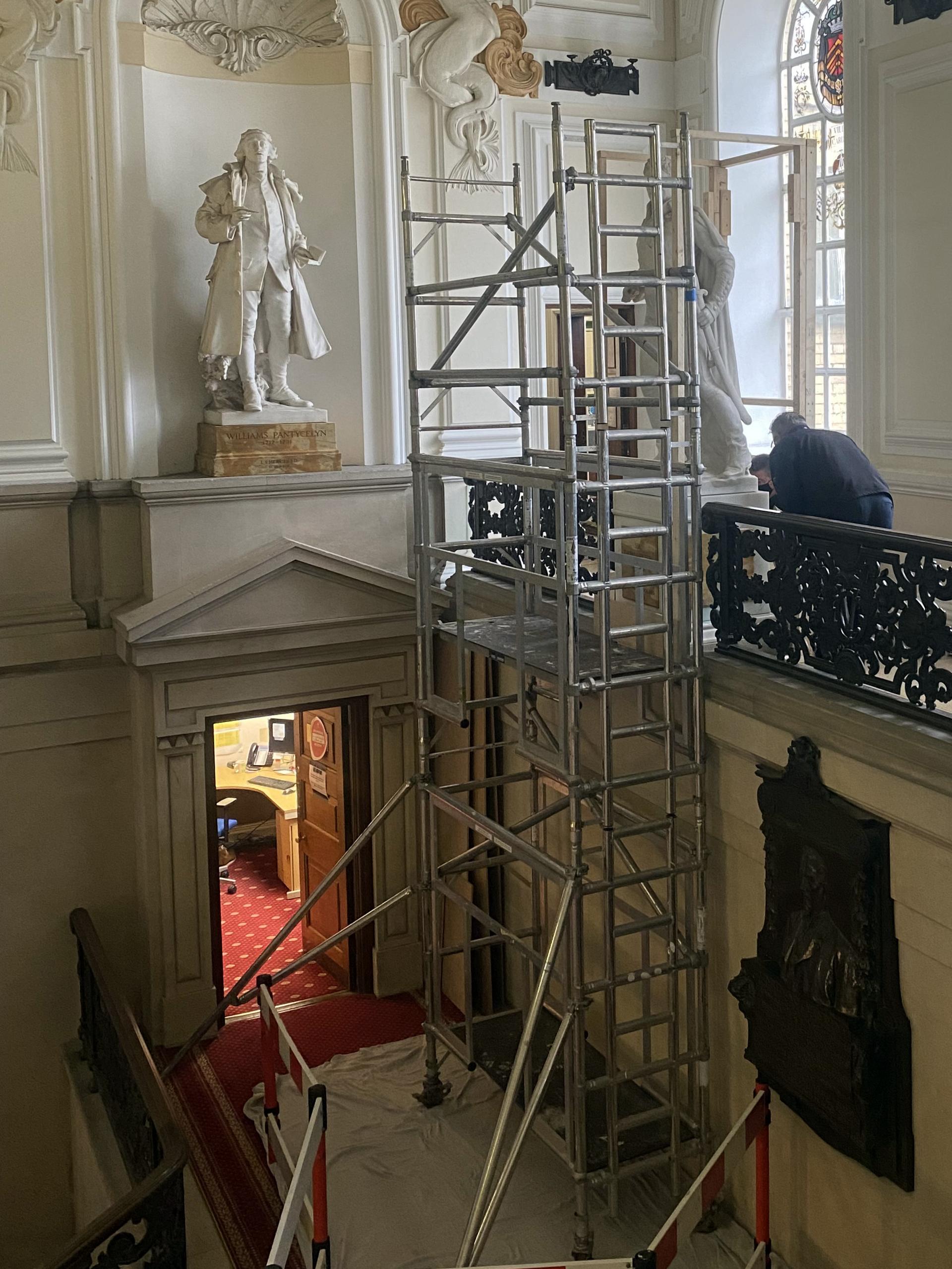
The Picton statue in City Hall has was inspected last month before being boarded up again

Earlier this month, National Museum Cardiff removed a portrait of Welsh slave owner Sir Thomas Picton.
Picton has been celebrated as a hero who died at the Battle of Waterloo, but as governor of Trinidad he abused the slaves he owned, and was known as a tyrant even at the time.
It has been put in storage and two artists with Trinidadian roots have been commissioned to "re-frame" the legacy to give more context about his life.
In July last year, a Picton marble statue was placed in a wooden box at Cardiff City Hall. The council said it was waiting on ministerial approval before removing it.
In June last year, a plaque commemorating 17th Century slave trader Captain Thomas Phillips was removed by an unidentified person before any decision about its future could be taken.
Lat December, it was decided an obelisk to war hero Sir Thomas Picton in Carmarthen would have a sign added to reference his links to slavery.
Last month Denbigh residents voted overwhelmingly to retain a bronze of Africa explorer Henry Morton Stanley.
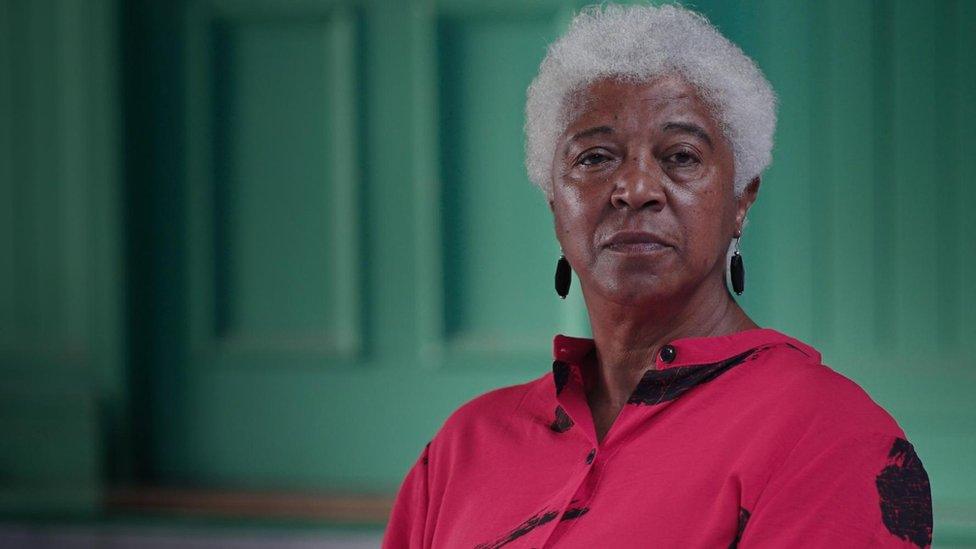
Gaynor Legall led the independent task and finish group that carried out an audit
Gaynor Legall, an advocate for ethnic minority women and Wales' first black female councillor, led the independent task and finish group that carried out the audit.
She said its purpose was not to give advice or set out plans for the future but to capture "what was out there, who was out there and why".
She said the next steps were a challenge: "It is certainly not straightforward and it is contentious… which is why the Welsh government has taken this length of time.
She added: "For as many people who say 'pull the statue down' there is a group who say 'move it' or another group who say 'leave it as it is'.
"It's finding some way that can respond to most of those groupings."
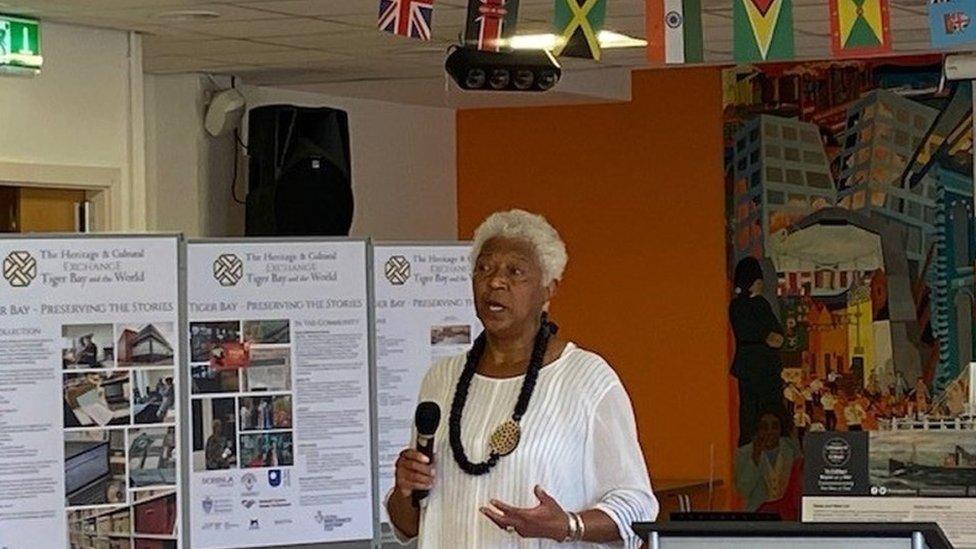
Gaynor Legall is an advocate for ethnic minority women
She said satisfying everyone was "doubtful", adding: "We can only do our best".
Decisions on contentious memorials should be made my people who live near them, she added.
"The first minister is very keen to not rewrite history, which some people think this is about, but to give a fuller and truer picture of historical events so it's filling in the gaps in Welsh history," she said.
"To acknowledge the fact that racism exists in Wales, as it does across the world."
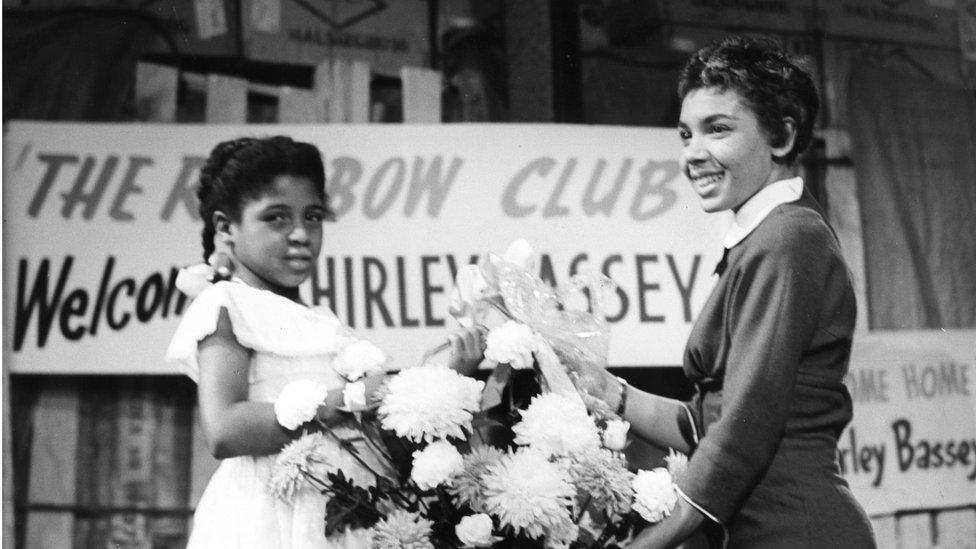
Gaynor Legall (left) met Shirley Bassey when she was in The Rainbow Club for children from Cardiff's multicultural Docklands area in 1957
What do young, black, Welsh people think?
Connor Allen, 29, a multidisciplinary artist from Newport, thinks it is time for decisions to be made about the contentious memorials.
"A trust element comes in," he said.
"You've done this audit over a year ago, waited a whole year and still nothing. So...what was the point in the audit?
"You need to keep that momentum, so it's not good enough."
He would like to see the statues remain in place but updated with details of the subject's links to the slave trade.
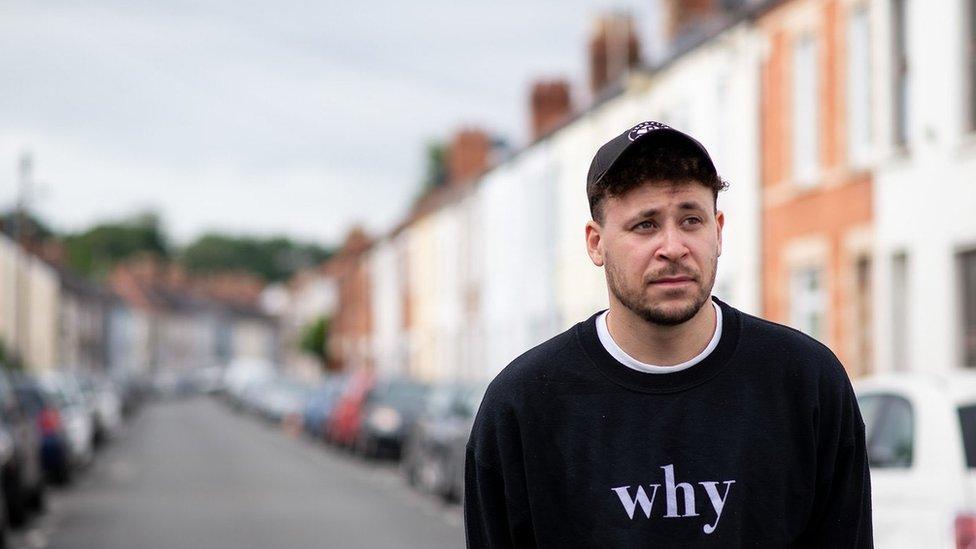
Connor Allen says tearing down statues won't change history
"Regardless of if the statues are up or not, that history and those atrocities happened - we can't change that."
He added: "I don't feel the need to tear down statues... it's about acknowledging what's happened."
He would like to see more memorials to "paint new pictures and tell new stories" of people from underrepresented groups.
Lloyd Lewis, who plays for Pontypool RFC and works at a TV production company, wants to see all memorials with links to slavery removed.
The 25-year-old from Cwmbran in Torfaen, said: "I think it's definitely the right thing to do to to have them removed.
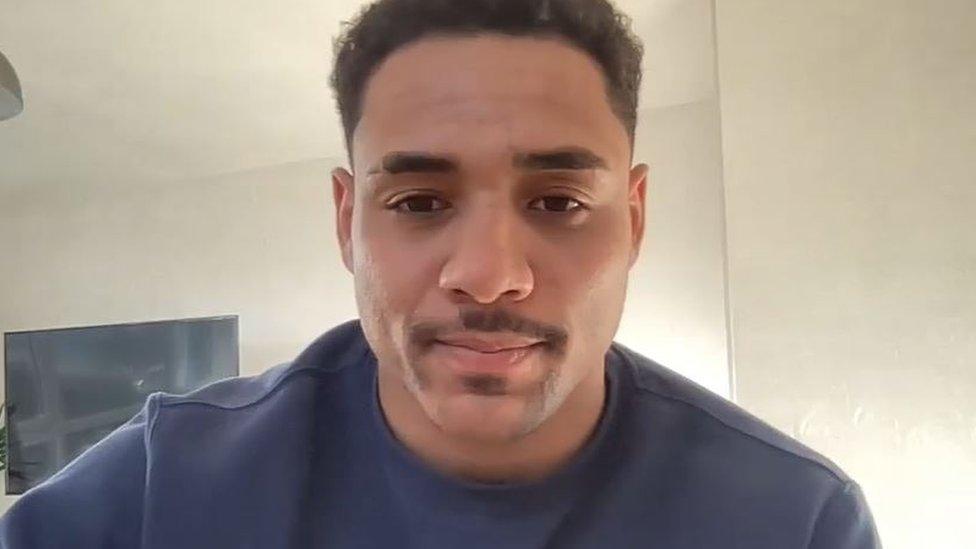
Lloyd Lewis says historical figures with links to slavery should not be celebrated
"I think the idea of celebrating people who are involved in the slave trade is wrong... in the 21st Century there's definitely no place for it."
He said he wanted the history of slavery acknowledged and taught in schools.
A year on from the audit he believes the decision process in "dragging on a bit".
He added: "As long as something gets done, that's the main thing."

2021 BAFTA CYMRU NOMINATED: Watch the cream of the crop
ARTS AND HERITAGE: Lose yourself in Welsh creativity and culture

- Published26 October 2020
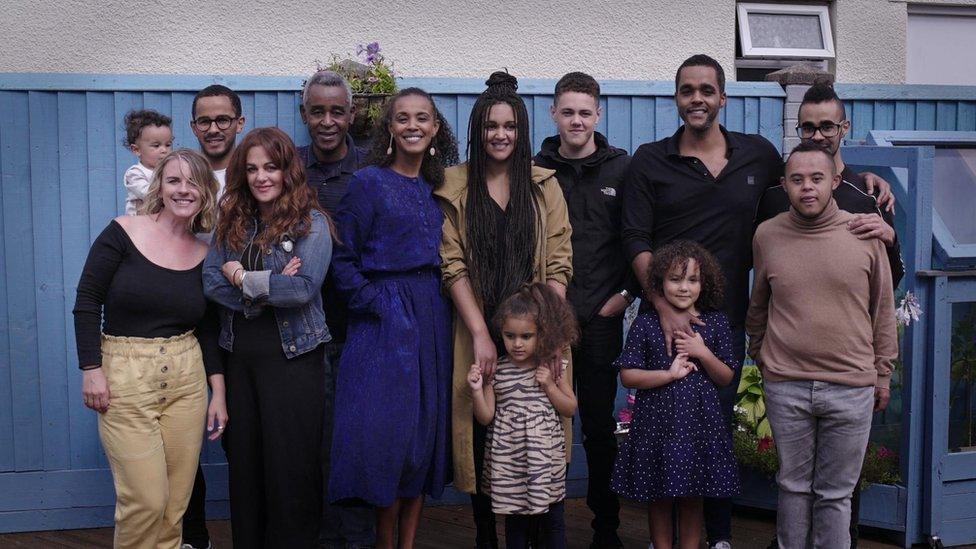
- Published26 November 2020
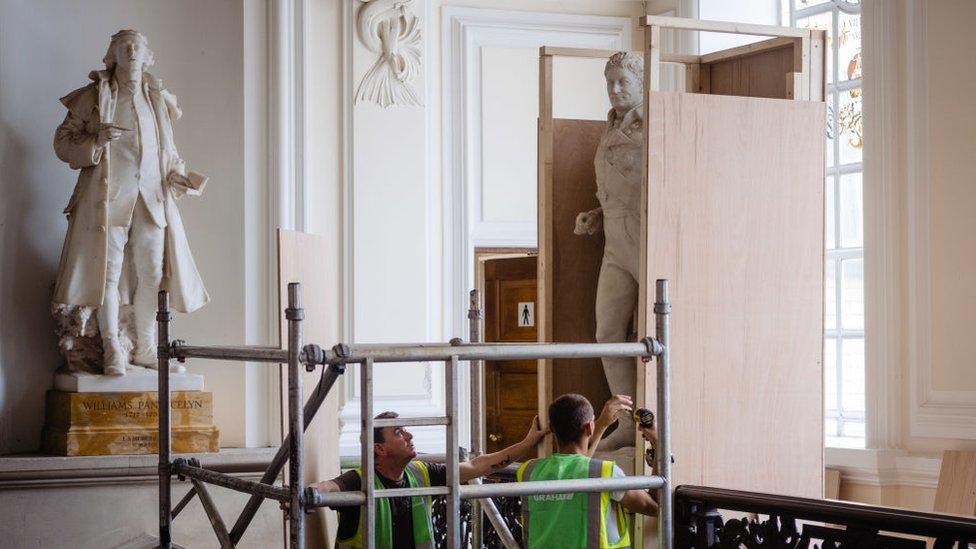
- Published3 November 2021
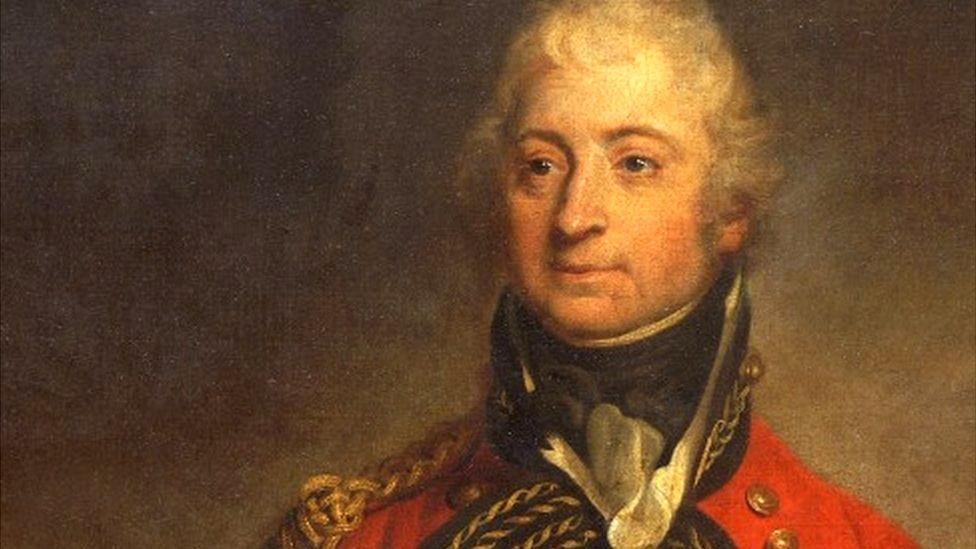
- Published8 June 2020
